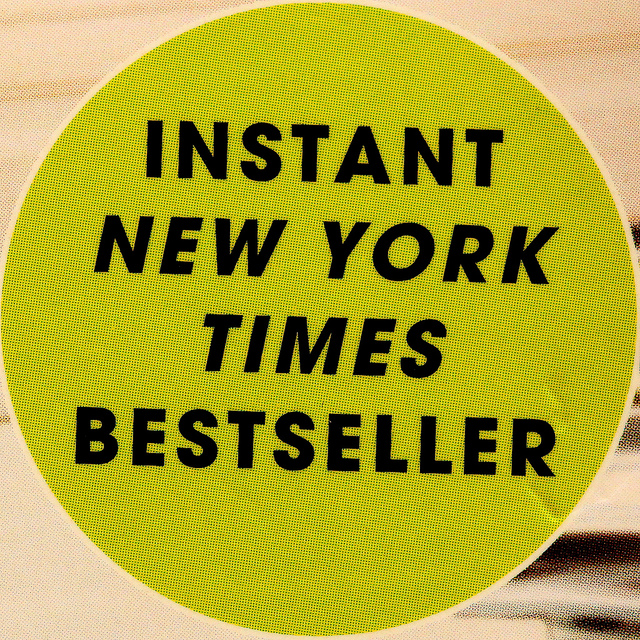
In the literary world, New York Times Bestseller is a coveted and sought-after label. When that gold sticker is slapped on the cover of a book, authors and publishers alike are likely to be happy campers, and there are few surefire ways to create buzz about a particular work than Bestseller status.
Brandeis sociology professor Laura Miller weighs in on a piece in Hopes&Fears where the stickiness of the New York Times Bestseller label is discussed. Miller states “People assume that if everyone else is reading a book then it ought to be good.”
Indeed, this peer-pressure style marketing is what makes the Bestseller label so desired. It’s basically an endorsement from a huge number of everyday people—but the formula isn’t that simple. As explained in the article, the New York Times Bestseller label was created in 1931, when editors would take random samples of book sales from undisclosed vendors to gauge the popularity of particular manuscripts. In the modern era, the process has become murkier. Discussing the process in determining Bestseller status today, Miller explains:
Once you got online bookselling, anyone and everyone was selling a book… you can’t have millions of retail establishments giving data to the Times. That means they have to ask for a sample of the different kinds of places that are selling books… While the actual reporting of sales from those particular places might be more accurate than in the past, the ability to get an accurate sample is actually more difficult.
In the past, while the accuracy of the data from book vendors was imperfect, gathering a representative sample of book market transactions was easier—there were fewer potential vendors. Today, though, selection process of specific vendors for Bestseller sampling purposes is tightly controlled, so that publishers and authors can’t artificially inflate their book sales at particular stores or retailers in order to boost their likelihood of Bestseller status. Whatever the process, however, it will have to further contend with new forms of book purchases, such as e-book and Kindle sales. Either way, authors and publishers will still wait with bated breath: Is it a Bestseller?

Comments 1
CopperAlley — March 7, 2025
It’s fascinating how the “New York Times Bestseller” label has evolved into a powerful form of social proof—people often assume that if “everyone else” is reading a book, it must be worth their time. As the article points out, the process behind obtaining this status has gotten more complicated with online and e-book retail, but the marketing value remains immense. The label itself triggers curiosity and boosts a book’s visibility by tapping into FOMO (fear of missing out). This is where a Full-cycle marketing agency can make a significant difference. By handling everything from initial audience research and content strategy to execution and analytics, such an agency ensures authors maximize every channel—social media, email marketing, publicity, and more. With the right blend of data-driven tactics and persuasive storytelling, even newcomers to the publishing world can position themselves competitively and aim for that coveted bestseller status. In the end, while achieving a spot on the New York Times list isn’t guaranteed, smart, coordinated marketing efforts can help authors reach new readers and build a loyal fanbase in an increasingly crowded marketplace.